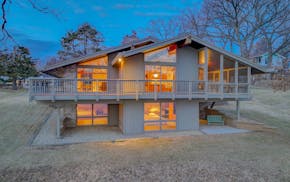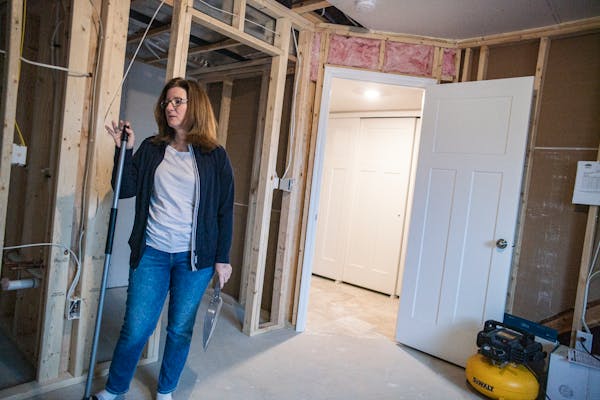Home building in the Twin Cities has slipped nearly 50% this year as higher mortgage rates choke home sales.
The latest figures show during April, builders received enough permits to build 386 single-family houses, 38% fewer than last year at the same time, according to a recent report from Housing First Minnesota.
Apartment construction during the month was down even more dramatically, with cities issuing developers enough permits to build 240 units, mostly rental apartments. That was a 84% decline compared with last year.
"We're in a time of change," said Michael Ramme, Twin Cities-based land manager for David Weekley Homes.
Permit issuance can vary drastically from month to month, especially for multifamily projects that can account for hundreds of units, but the April decline is part of a steady trend.
So far this year, builders have garnered enough permits to build 2,931 houses, apartments and other multifamily units compared with 5,687 last year. Multifamily units accounted for 57% of all construction.
Construction last year was off the charts. During the early months of the year, when rates were still near record lows, builders couldn't keep up with demand, and the rental pipeline was still flush with projects. Construction soared nearly 20% from the previous year.
So many expected a slowdown in construction this year.
This spring, with mortgage rates hovering between 6% and 7% for a fixed-rate mortgage, demand has been more tepid. On Thursday, Freddie Mac said the 30-year fixed-rate mortgage increased modestly for the second consecutive week, averaging 6.43%. A year ago, the 30-year FRM averaged 5.10%
Sam Khater, Freddie Mac's chief economist, said in statement that with the rate of inflation decelerating, rates should gently decline through the course of 2023.
This spring, new home sales in the metro are down but not as much for previously owned homes. As of March, there was a 20% decline in signed purchase agreements based on a 12-month rolling total, according to the Minneapolis Area Realtors. Previously owned homes were down 24%.
Nationwide, new home sales during March were stronger than expected, falling only 3.4% from last year but increasing 9.6% from the previous month, according to the U.S. Census Bureau.
This spring, home builders and rental developers are taking a more cautious approach.
Ramme said many builders, especially publicly traded companies, are hitting pause in hopes of not having too many unsold homes and too much debt at a time of economic uncertainty.
That's not the case at David Weekley, he said.
"Some builders are really taking a step back and not doing a lot of deals this year," he said. "That opens the door for us."

Minnesota stocks plummet as tariffs' impact spooks consumers and companies

Trump's tariffs will likely raise inflation, Federal Reserve chair says

Prairie School house on Stillwater's Lily Lake listed for $825K
New type of electric engine powering Graco's latest round of innovation

